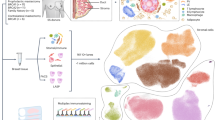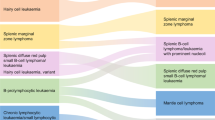Abstract
Serum obtained by clotting whole blood contains a potent mitogen with apparent specificity for mesenchymal cells. This peptide wound-healing hormone, derived from platelets, is known as platelet-derived growth factor (PDGF). Serum obtained by clotting plasma contains no detectable growth-promoting activity for fibroblasts, and is therefore a valuable additive to culture medium for an examination of the autonomy of cells from exogenous PDGF. Fibroblasts from man, mouse and hamster remain mitotically quiescent in plasma-derived serum and proliferate only when a source of PDGF is added. Normal human kidney epithelial cells and human T-cells proliferate normally in plasma-derived serum, and are unaffected by the addition of PDGF. A range of virally transformed cells and malignant cells from chemically induced rodent sarcomas was tested for their proliferative capacity in plasma-derived serum and their response to exogenous PDGF. A complete spectrum of PDGF-dependence was revealed. Polyoma-transformed BHK21 cells and SV40-transformed 3T3 cells showed complete PDGF independence. Cells from 7 chemically induced rat or mouse sarcomas provided results which ranged from the FS6 (a C57BL Cbi mouse sarcoma which was completely PDGF dependent) to MC28 (a hooded rat sarcoma) which was completely PDGF independent. The dependence of proliferation of these cells on PDGF showed a close correlation with several features of their in vivo behaviour. Tumours which were non-immunogenic in syngeneic hosts, contained few host macrophages and produced a high incidence of spontaneous distant metastases provided PDGF-independent cells. Cells from highly immunogenic, macrophage-rich "non-metastasizing" tumours were on the other hand PDGF dependent and tumours of intermediate "malignancy" provided cells with partial autonomy from PDGF. An assay for anchorage-independent growth provided data which also correlated with autonomy from PDGF. However, daily addition of large amounts of PDGF to BHK21 C13 cells induced reversible anchorage independent growth. The value of plasma-derived serum for the investigation of the proliferative autonomy of malignant cells is emphasized.
This is a preview of subscription content, access via your institution
Access options
Subscribe to this journal
Receive 24 print issues and online access
$259.00 per year
only $10.79 per issue
Buy this article
- Purchase on Springer Link
- Instant access to full article PDF
Prices may be subject to local taxes which are calculated during checkout
Similar content being viewed by others
Rights and permissions
About this article
Cite this article
Currie, G. Platelet-derived growth-factor requirements for in vitro proliferation of normal and malignant mesenchymal cells. Br J Cancer 43, 335–343 (1981). https://doi.org/10.1038/bjc.1981.53
Issue Date:
DOI: https://doi.org/10.1038/bjc.1981.53
This article is cited by
-
Cytocentrifugation: a convenient and efficient method for seeding tendon-derived cells into monolayer cultures or 3-D tissue engineering scaffolds
Cytotechnology (2011)
-
Tissue specific characteristics of cells isolated from human and rat tendons and ligaments
Journal of Orthopaedic Surgery and Research (2008)
-
The role of glucocorticoids and prostaglandin E2 in the recruitment of bone marrow mesenchymal cells to the osteoblastic lineage: Positive and negative effects
Calcified Tissue International (1996)
-
Time-dependent effects of parathyroid hormone and prostaglandin E2 on DNA synthesis by periosteal cells from embryonic chick calvaria
Calcified Tissue International (1994)
-
Developmentally regulated production of platelet-derived growth factor-like molecules
Nature (1984)



